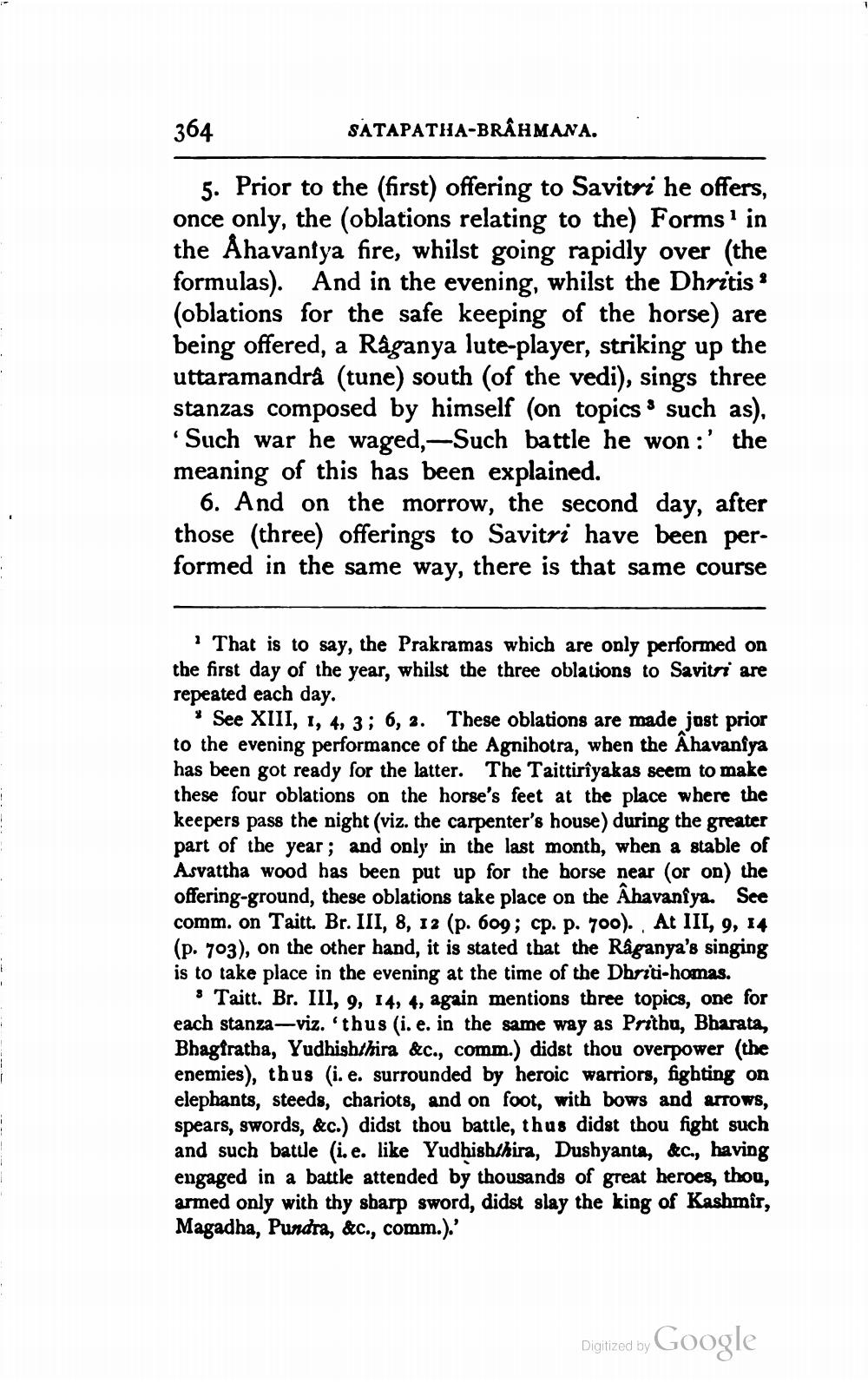________________
364
SATAPATHA-BRÂHMANA..
5. Prior to the (first) offering to Savitri he offers, once only, the (oblations relating to the) Forms in the Åhavanfya fire, whilst going rapidly over (the formulas). And in the evening, whilst the Dhritis (oblations for the safe keeping of the horse) are being offered, a Râganya lute-player, striking up the uttaramandrå (tune) south (of the vedi), sings three stanzas composed by himself (on topics such as),
Such war he waged, -Such battle he won :' the meaning of this has been explained.
6. And on the morrow, the second day, after those (three) offerings to Savitri have been performed in the same way, there is that same course
That is to say, the Prakramas which are only performed on the first day of the year, whilst the three oblations to Savitri are repeated each day.
* See XIII, 1, 4, 3; 6, 2. These oblations are made just prior to the evening performance of the Agnihotra, when the Ahavaniya has been got ready for the latter. The Taittirîyakas seem to make these four oblations on the horse's feet at the place where the keepers pass the night (viz. the carpenter's house) during the greater part of the year; and only in the last month, when a stable of Asvattha wood has been put up for the horse near (or on) the offering-ground, these oblations take place on the Ahavaniya. See comm. on Taitt. Br. III, 8, 12 (p. 609; cp. p. 700). , At III, 9, 14 (p. 703), on the other hand, it is stated that the Råganya's singing is to take place in the evening at the time of the Doriti-homas.
Taitt. Br. III, 9, 14, 4, again mentions three topics, one for each stanza-viz. 'thus (i. e. in the same way as Pritha, Bharata, Bhagiratha, Yudhishthira &c., comm.) didst thou overpower (the enemies), thus (i. e. surrounded by heroic warriors, fighting on elephants, steeds, chariots, and on foot, with bows and arrows, spears, swords, &c.) didst thou battle, thus didst thou fight such and such batule (i.e. like Yudhishthira, Dushyanta, &c., having engaged in a battle attended by thousands of great heroes, thou, armed only with thy sbarp sword, didst slay the king of Kashmir, Magadha, Pundra, &c., comm.).'
Digitized by Google




